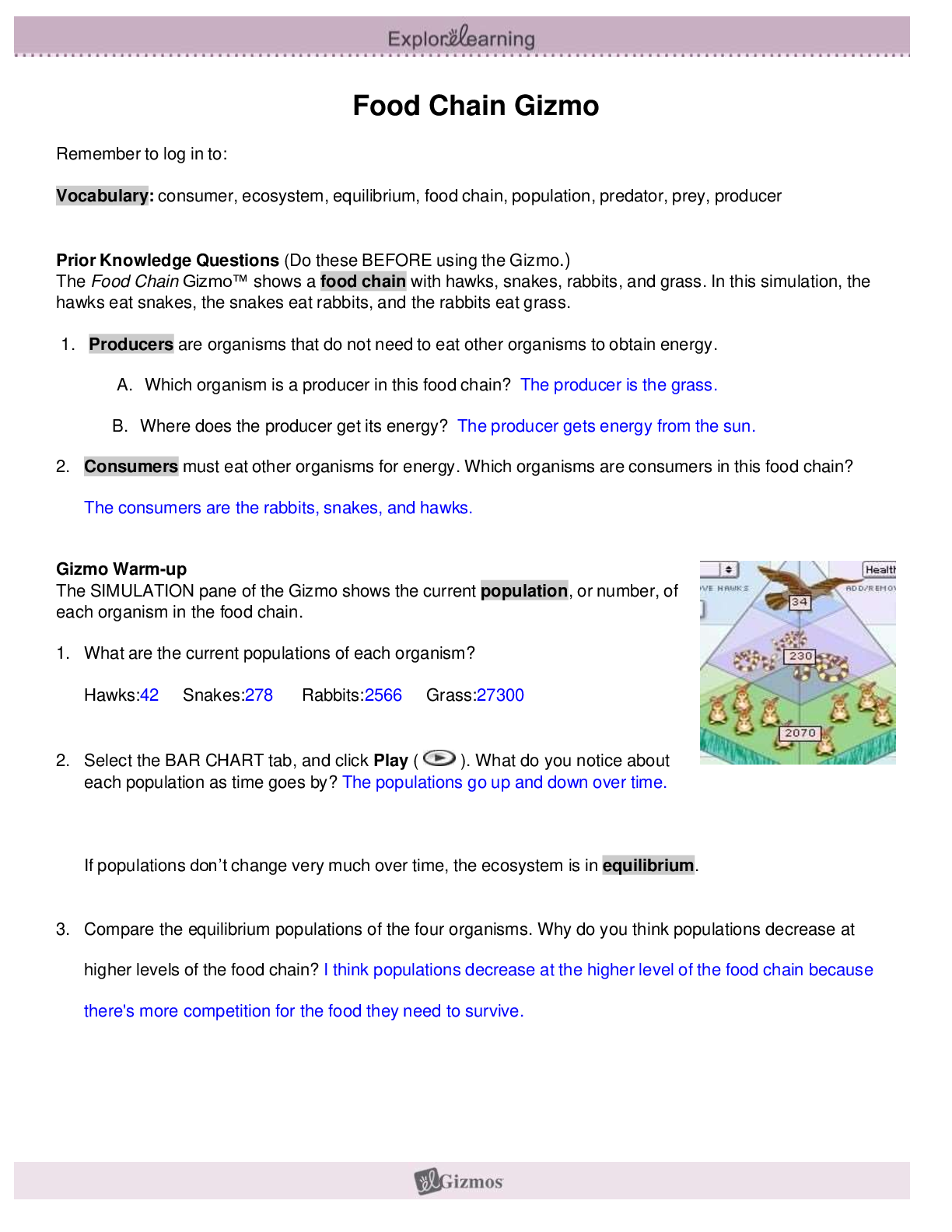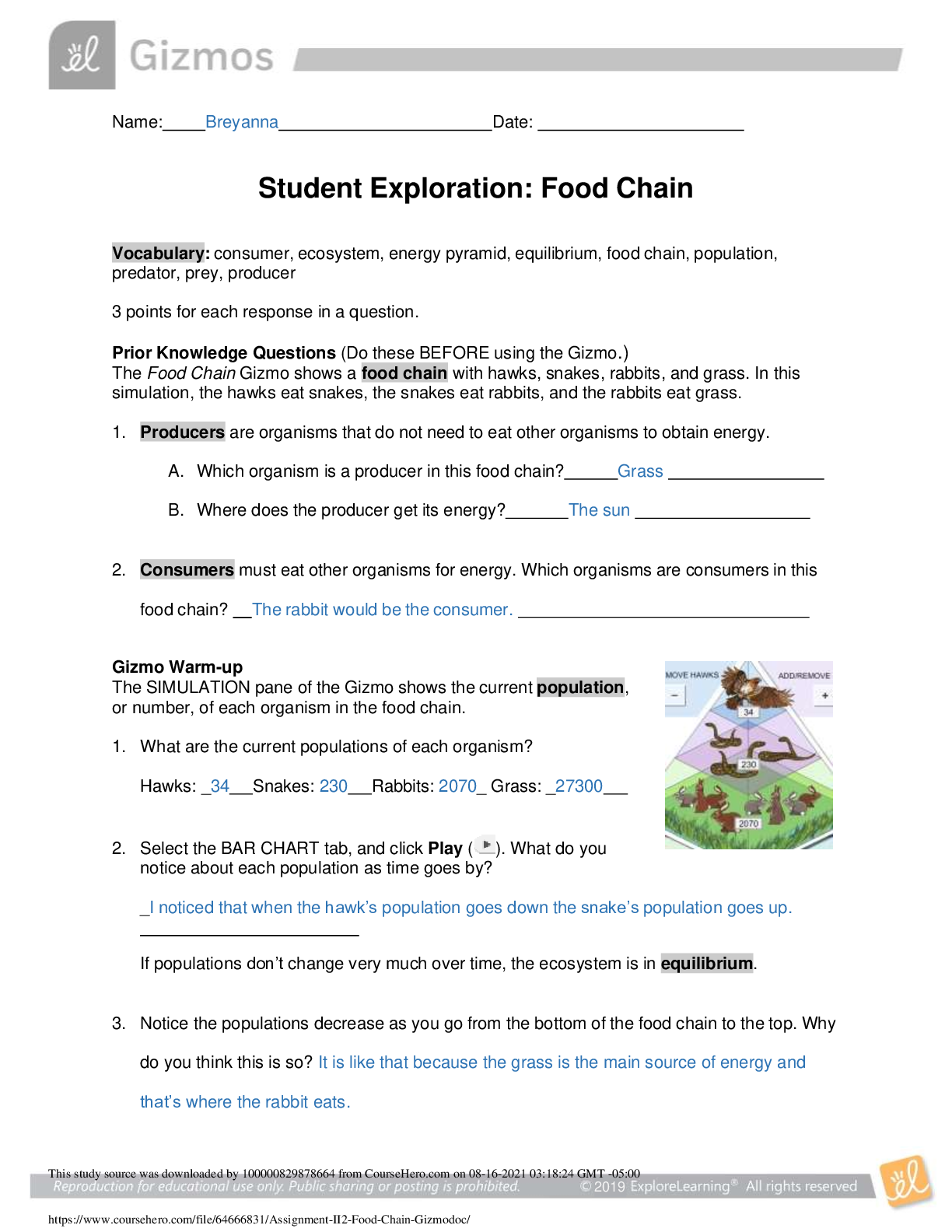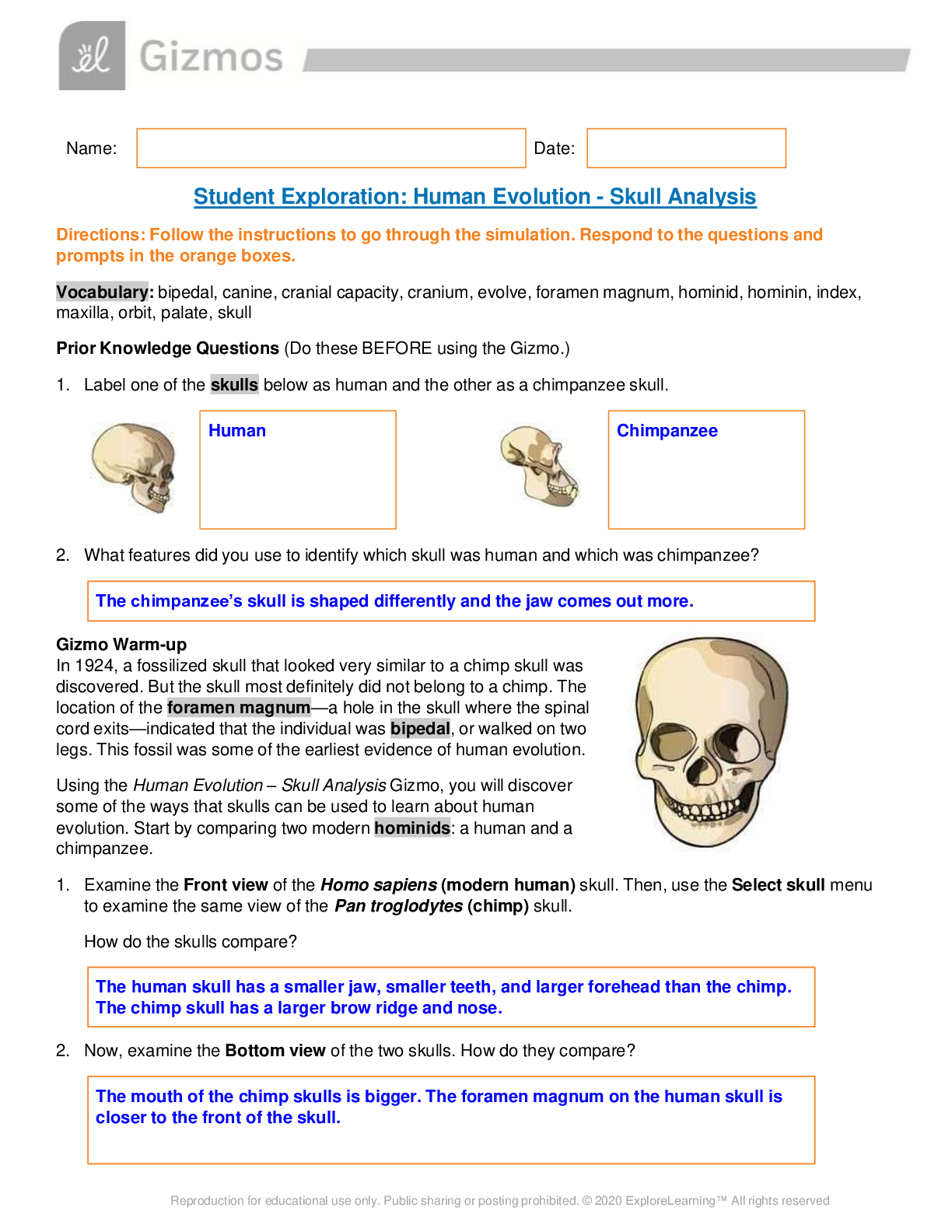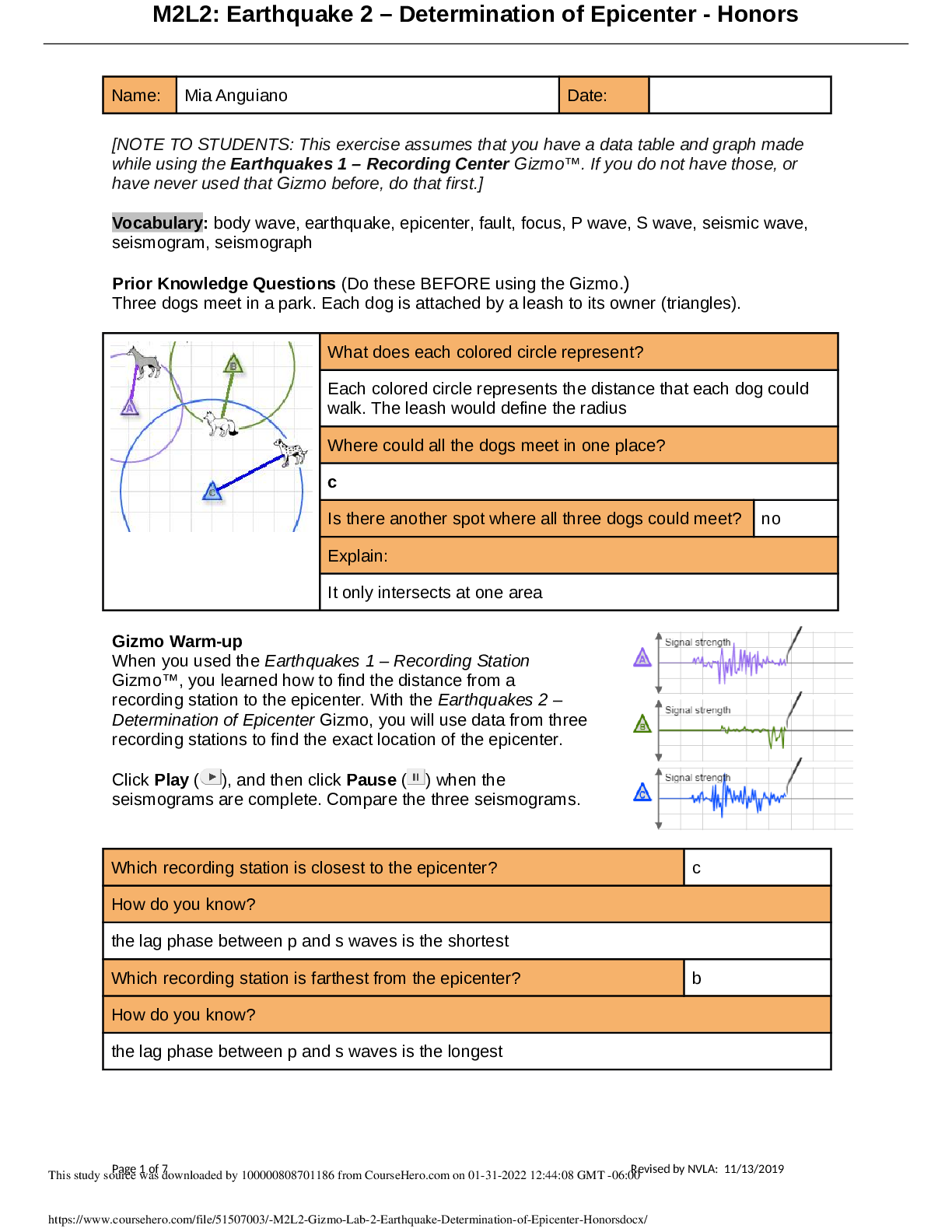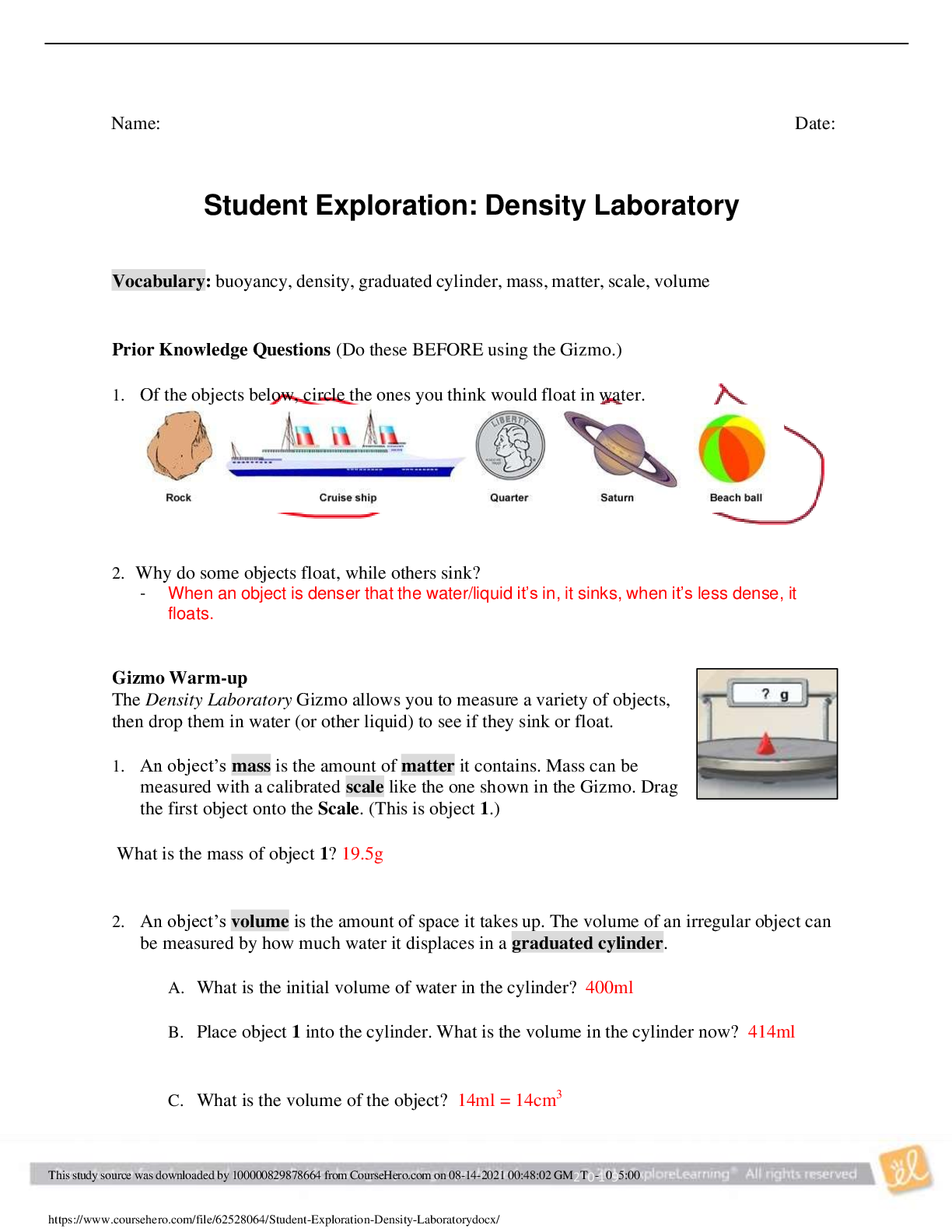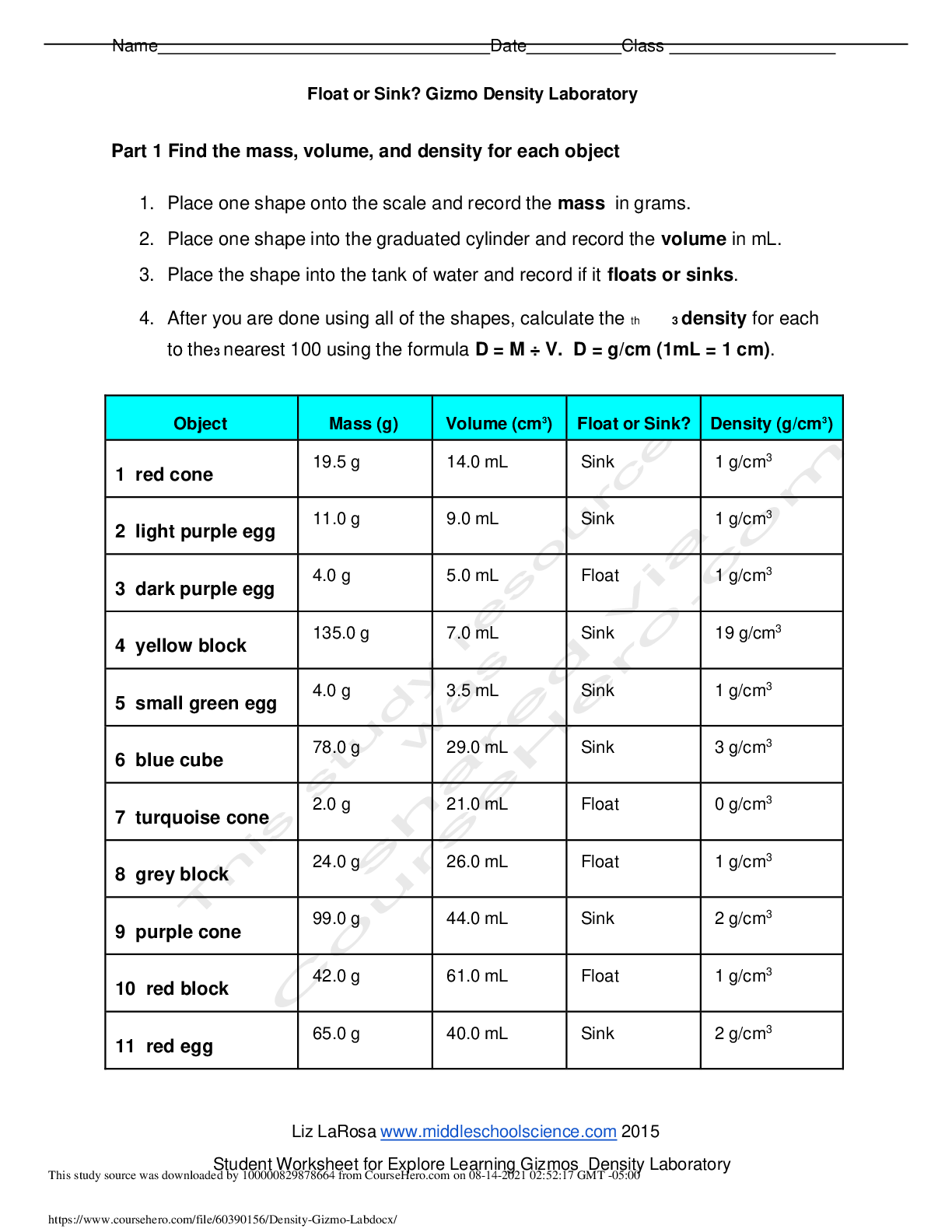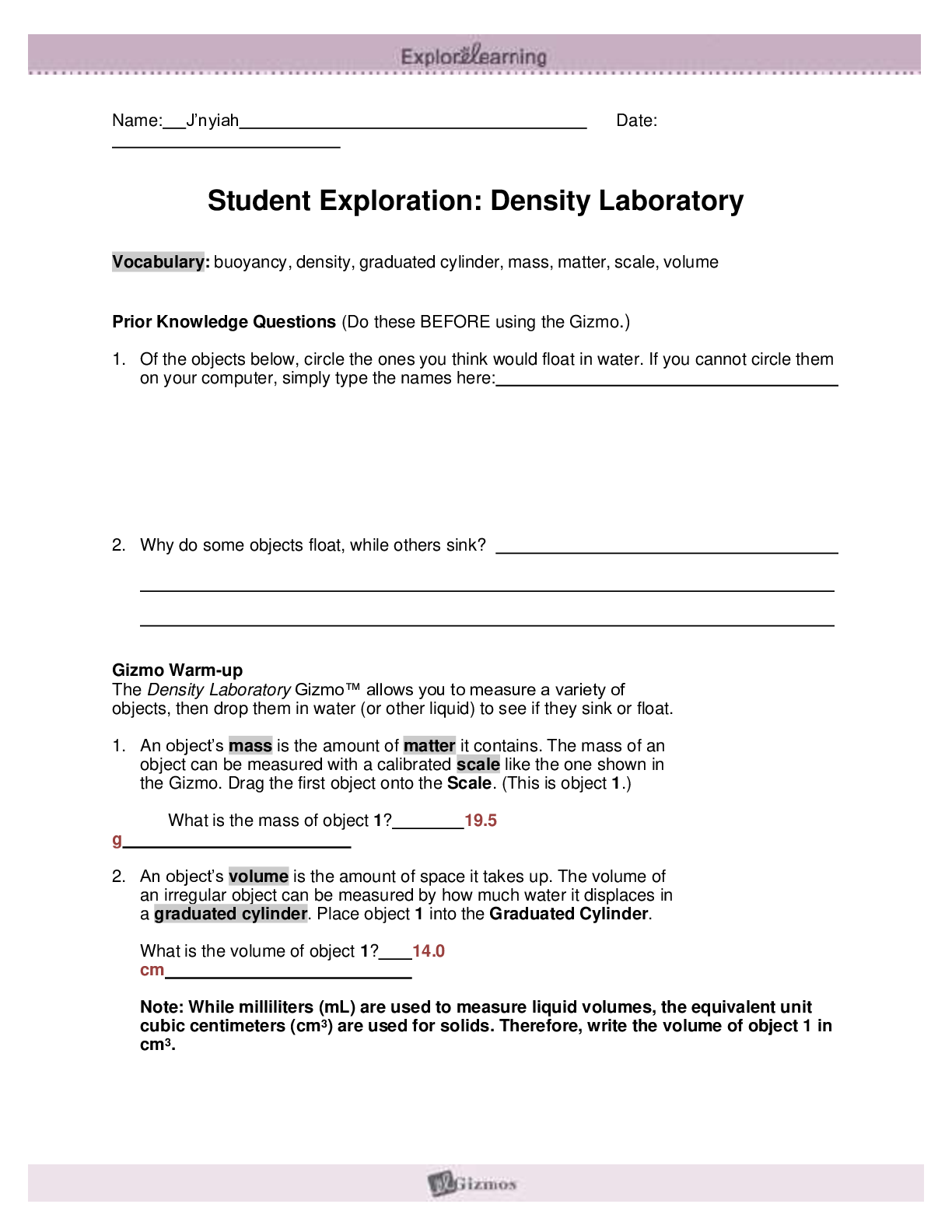Rabbit Gizmo Population by Season Pre-Simulation Questions:
Document Content and Description Below
Rabbit Population by Season Login: Password: Pre-Simulation Questions: 1. Suppose you had a pet rabbit. Give 3 things that rabbit needs in order to survive. • • • ... 2. A female rabbit can produce 40 baby rabbits each year. If all of her offspring survived and reproduced, an all of those offspring survived and reproduced, it would take only 8 years for before the biomass of rabbits was greater than the entire earth. So, why aren’t we overrun with rabbits? Give two ways that the rabbit population is kept “in check”. • • A population is a group of individuals of the same species that live in the same area. The size of a population is determined by many factors. 1. Select the BAR CHART tab. What is the approximate size of the initial rabbit population? (You may have the check the “Show Value” box”) 2. Select the TABLE tab. Click Play ( ), and allow the simulation to run for one year. Watch the clock and when all four seasons are shaded, press the pause button in the control box 3. Record the first value in each season as the “starting” population. Record the last value in a season as the “ending” value. Subtract the ending value from the starting value for the total population growth. Season Starting Population Ending Population Total Population Growth Spring Summer Fall Winter A. In which season did the rabbit population increase the most? B. In which season did the rabbit population increase the least? C. What factor do you think most influences the rabbit population in each season? Question: What determines how large a population can grow? 1. A limiting factor is any factor that controls the growth of a population. Give TWO limiting factors for rabbits in this population: • • 2. Select the DESCRIPTION tab. Set the Simulation speed to Fast. Select the GRAPH tab. Click Play, and allow the simulation to run for at least 10 years. (Note: You will need to widen the graph to see 10 years. Click the A. Sketch what the graph looks like below: This study source was downloaded by 100000829878664 from CourseHero.com on 08-04-2021 13:30:21 GMT -05:00 3. The carrying capacity is the maximum number of individuals of a particular species that an environment can support. All environments have carrying capacities. To find the carrying capacity, click the bar chart. (Make sure you have “Show Values” checked.) A. What is this environment’s approximate carrying capacity for rabbits? B. Looking at the graph above, during which year did the rabbits first hit their carrying capacity? C. Carrying capacities fluctuate due to seasons. During which seasons do you think the carrying capacity is higher? Activity B: Density-dependent limiting factors Get the Gizmo ready: • Click Reset. • On the SIMULATION pane, make sure Ample is selected for the amount of LAND available. Population density is the number of individuals in a population per unit of area. Some limiting factors only affect a population when its density reaches a certain level. These limiting factors are known as density-dependent limiting factors. Question: How does a density-dependent limiting factor affect carrying capacity? 1. Give 3 density-dependent limiting factors for the rabbit population. ...............................................................................continued................................................................................................. [Show More]
Last updated: 2 years ago
Preview 1 out of 7 pages

Buy this document to get the full access instantly
Instant Download Access after purchase
Buy NowInstant download
We Accept:

Reviews( 0 )
$7.00
Can't find what you want? Try our AI powered Search
Document information
Connected school, study & course
About the document
Uploaded On
Aug 04, 2021
Number of pages
7
Written in
Additional information
This document has been written for:
Uploaded
Aug 04, 2021
Downloads
0
Views
112

